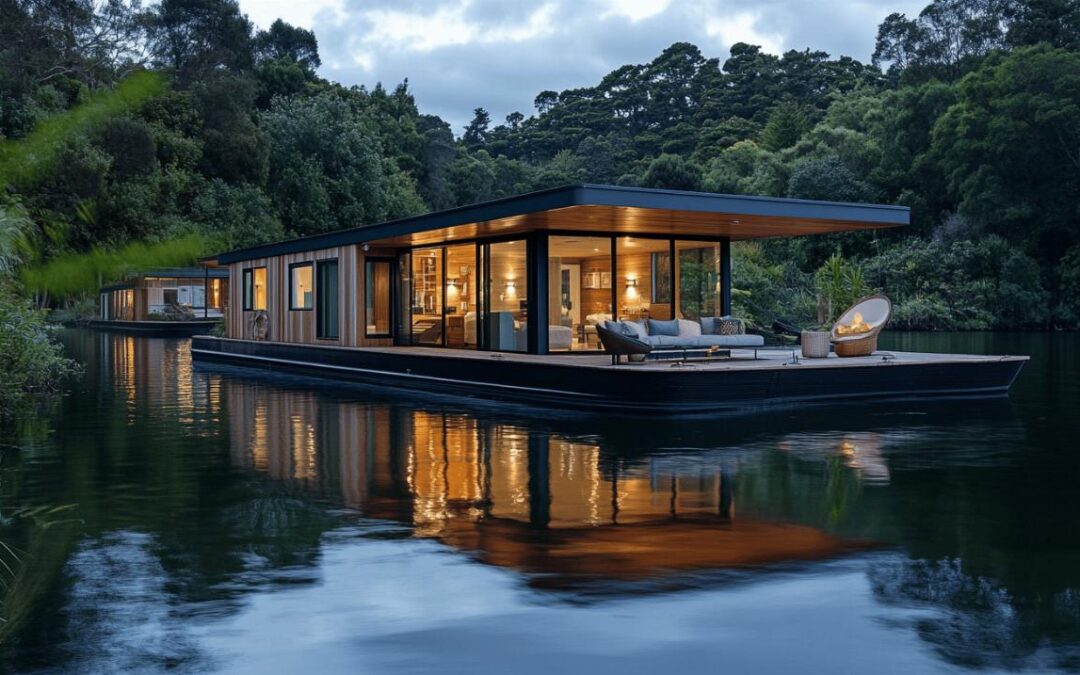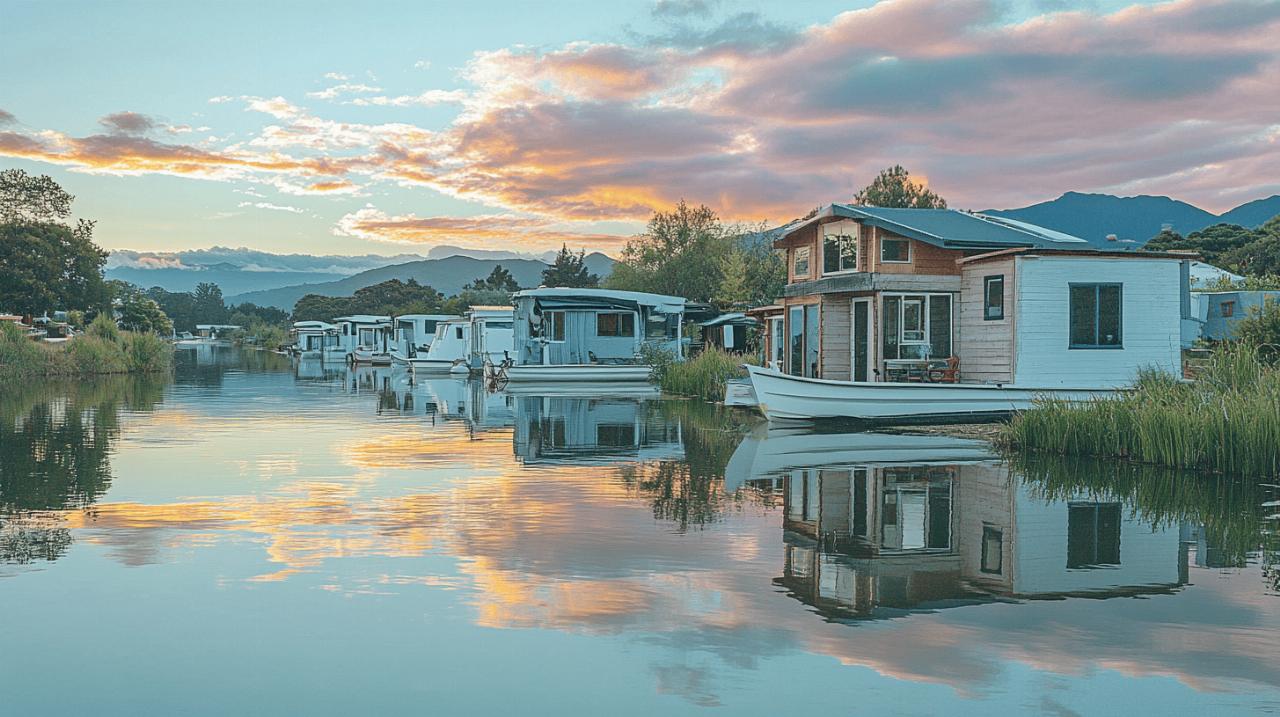
Exploring Unique Real Estate Opportunities: Houseboats in New Zealand
As New Zealand’s housing market continues to challenge traditional buyers, a growing number of Kiwis are casting their gaze towards the water. Houseboats represent not just a dwelling but an entirely different approach to homeownership, combining mobility with sustainability in a uniquely maritime fashion. This emerging trend is reshaping what property ownership means in a country blessed with abundant coastlines and inland waterways.
The Rising Trend of Houseboat Living in New Zealand
The concept of floating homes is not entirely new to New Zealand. Historically, a notable example was ‘The House-boat’, a floating hotel that serviced visitors on the Whanganui River during the early 1900s. Today, however, the motivation behind choosing water-based living has evolved significantly. According to recent information from https://www.domusagency.it/, which provides comprehensive news and services related to property investments, houseboats are gaining attention as viable alternatives to conventional real estate in New Zealand.
Traditional housing costs versus waterborne alternatives
The appeal of houseboats largely stems from the escalating costs of land-based housing in New Zealand. While traditional property prices continue to rise in urban centres, floating homes offer a compelling financial alternative. For instance, a Bavaria E40 Sedan, a comfortable modern houseboat, is available at approximately $498,000 NZD, considerably less than the average house price in Auckland or Wellington. This vessel measures 13.60m and includes three cabins, providing substantial living space without the premium land costs associated with waterfront properties.
Financial considerations extend beyond the initial purchase price. Houseboat owners must factor in ongoing costs such as mooring fees, maintenance, insurance, and potential depreciation, which differ significantly from traditional property expenses. However, these costs are often offset by reduced utility bills and the absence of property taxes in certain situations.
Kiwi Lifestyle Adaptation to Waterways and Harbours
New Zealanders have always maintained a strong connection to water, making the transition to houseboat living a natural extension of the Kiwi lifestyle. From the northern harbours of Auckland to the southern lakes of Otago, the country offers diverse waterscapes suitable for different types of floating homes. The lifestyle adaptation involves embracing mobility, connection with nature, and often a more minimalist approach to possessions.
Modern houseboat designs cater to various preferences, from the locally designed K2 Marine flat-pack houseboats to international options like the luxurious ARKUP 50, the sustainable Floatwing by Friday, or the compact Nautino Adventure. These vessels integrate advanced features while maintaining harmony with New Zealand’s natural environment, offering residents unparalleled views and direct access to recreational activities like fishing, swimming, and sailing.
Financial aspects of houseboat ownership
The economics of owning a floating home extend beyond the initial investment and require careful consideration of multiple factors that differ from traditional real estate transactions. Understanding these aspects is crucial for anyone contemplating this alternative property pathway.

Purchase considerations and ongoing maintenance expenses
When evaluating a potential houseboat purchase, buyers must consider specifications beyond those relevant to land-based homes. For example, a Townson 36 Custom built in 1974 has a beam of 3.28m, a draft of 1.9m, and a displacement of 6,240kg. These technical details directly impact liveability, stability, and maintenance requirements.
Maintenance represents one of the most significant ongoing expenses for houseboat owners. The constant exposure to water necessitates regular hull inspections, treatment against corrosion, and mechanical system upkeep. Experts recommend creating a comprehensive maintenance schedule and budgeting between 5-10% of the vessel’s value annually for upkeep, depending on its age and construction materials.
Energy independence presents both a challenge and an opportunity. Modern houseboats increasingly incorporate renewable energy solutions, including solar panels, small wind turbines, and efficient water filtration systems. These installations require initial investment but contribute to long-term cost savings and align with New Zealand’s national commitment to sustainability and renewable energy.
Regulatory framework and mooring rights across nz waters
The regulatory landscape governing houseboats in New Zealand waters varies by region and waterway type. Prospective owners must navigate a complex system of permissions, certifications, and compliance requirements. Unlike traditional property, where ownership of land provides clear rights, houseboat owners must secure mooring rights separately from vessel ownership.
Suitable mooring locations require specific facilities, including waste disposal access, fresh water connections, and power supply options. The availability of these services varies significantly across New Zealand, with established marinas offering comprehensive amenities at premium prices, while more remote moorings may provide fewer services at reduced costs.
Regional councils throughout New Zealand maintain different policies regarding long-term moorings, with some areas encouraging floating communities while others impose strict limitations. This regulatory diversity requires potential houseboat owners to conduct thorough research into local regulations before committing to a purchase, ideally consulting with existing houseboat residents and marine legal specialists familiar with specific waterways.





